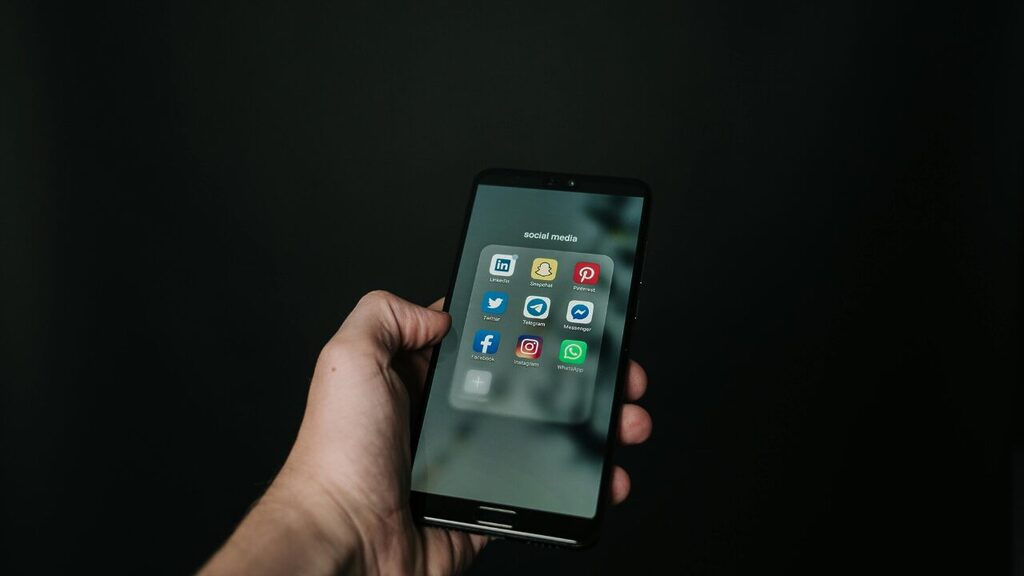In today’s hyper-connected world, the lines between substance addiction and social media dependency are increasingly blurred. As we grapple with the complexities of modern life, it’s crucial to understand how these two issues intersect and explore strategies for comprehensive recovery.
Understanding Addiction and Social Media Dependency
Substance addiction and social media dependency share striking similarities in terms of brain chemistry and behavioral patterns. Both trigger the release of dopamine, the brain’s “feel-good” neurotransmitter, creating a reward cycle that can lead to compulsive behavior.
Substance use disorders involve the compulsive use of drugs or alcohol despite negative consequences. Similarly, social media dependency is characterized by excessive, uncontrollable use of social platforms, often at the expense of real-life relationships and responsibilities.

The Interplay Between Substance Use and Social Media
The relationship between substance use disorders and excessive social media use is complex and often cyclical. Social media can serve as a trigger for substance use, exposing individuals to images or memories associated with their addiction. Conversely, substance use may lead to increased social media activity as a form of escapism or to maintain connections within substance-using social circles.
Moreover, the constant stream of curated content on social media can exacerbate feelings of inadequacy or FOMO (fear of missing out), potentially driving individuals towards substance use as a coping mechanism.
Shared Risk Factors
Several underlying issues contribute to both substance addiction and social media dependency:
- Stress: Both substances and social media can serve as stress-relief mechanisms.
- Anxiety and depression: These mental health conditions can drive individuals to seek escape through substances or online interactions.
- Low self-esteem: The desire for validation, easily accessible through social media likes and comments, can parallel the temporary boost in confidence provided by substances.
- Loneliness: Both addictions can stem from and perpetuate feelings of isolation.
Social Media’s Impact on Addiction Recovery
Social media’s role in addiction recovery is a double-edged sword. On the positive side, online support communities can provide valuable resources, encouragement, and a sense of belonging. However, social media can also present triggers, foster unhealthy comparisons, and create pressure to present a perfect recovery journey.
Dual Recovery Strategies
Addressing substance addiction and social media dependency simultaneously requires a multi-faceted approach:
- Cognitive-Behavioral Therapy (CBT): This evidence-based treatment can help identify and modify thought patterns and behaviors associated with both addictions.
- Mindfulness Practices: Techniques like meditation can increase self-awareness and reduce impulsive behaviors related to substance use and social media checking.
- Digital Detox: Structured breaks from social media can help reset habits and reduce dependency.
- Holistic Therapies: Activities like art therapy or outdoor recreation can provide healthy alternatives to both substance use and social media engagement.
- Support Groups: Combining traditional 12-step programs with support groups focused on technology addiction can address both issues concurrently.
Developing a Healthy Relationship with Social Media in Recovery
For those in recovery, maintaining sobriety while navigating the digital world requires intentional strategies:
- Set clear boundaries: Establish specific times for social media use and stick to them.
- Curate your feed: Follow accounts that support your recovery journey and unfollow those that may trigger cravings or negative emotions.
- Use social media mindfully: Before posting or scrolling, pause to consider your motivations and emotional state.
- Engage in offline activities: Cultivate hobbies and relationships that don’t rely on digital interaction.
- Practice digital mindfulness: Use apps that track and limit social media usage to maintain awareness of your habits.

The Importance of Comprehensive Treatment
Addressing both substance addiction and social media dependency in treatment is crucial for achieving lasting recovery and overall well-being. By tackling these intertwined issues simultaneously, individuals can develop a more balanced lifestyle and stronger coping mechanisms.
Treatment programs that incorporate digital wellness alongside traditional addiction recovery strategies are better equipped to address the full spectrum of challenges faced by individuals in the modern world.
Seeking Professional Help
If you or a loved one are struggling with substance addiction, social media dependency, or both, it’s essential to seek professional help. Trained specialists can provide personalized treatment plans that address the unique challenges of dual recovery in our digital age.
Don’t let addiction control your life. Take the first step towards comprehensive recovery today. Call Texas Recovery Centers at 888-354-2194 to speak with a compassionate expert about our innovative treatment programs. Your journey to a balanced, fulfilling life starts here.













